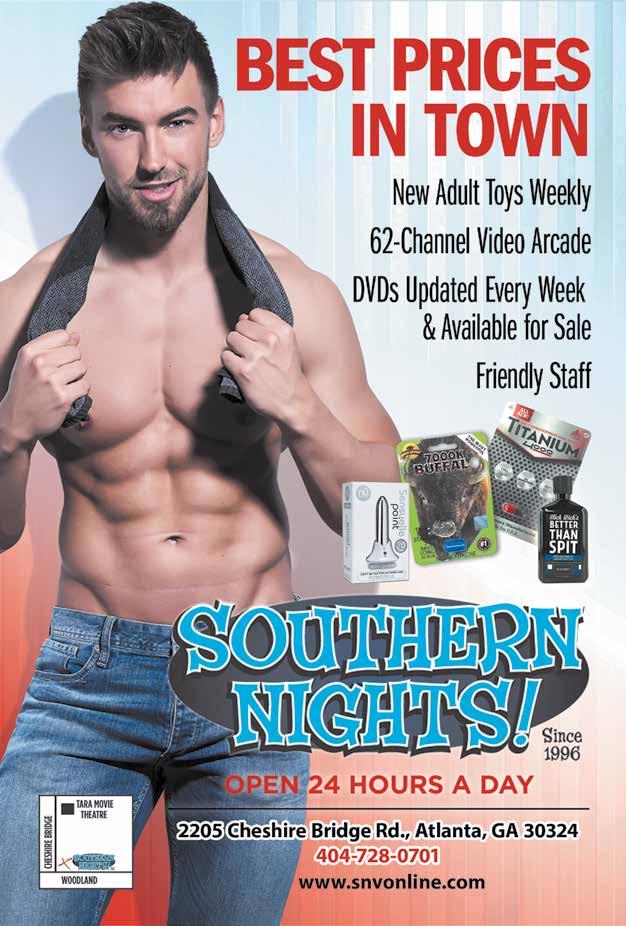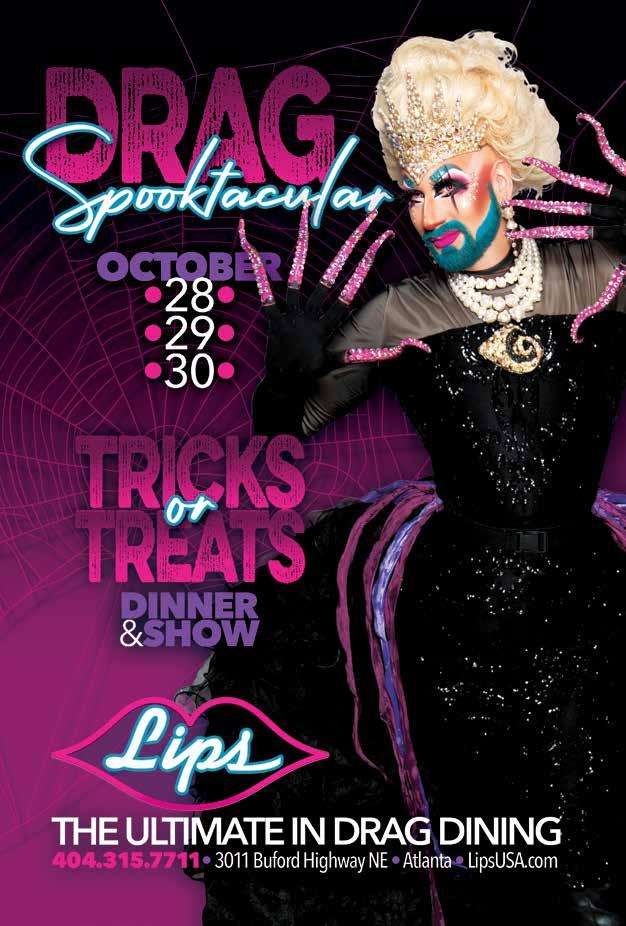




10K of it.)
Lace up for the real-life running party you’ve been missing. The 10K Tour is a multi-city race series that brings the fun well beyond the finish line.
Registration now open.

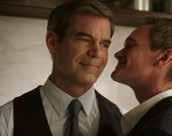

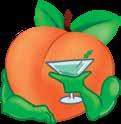









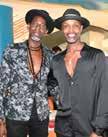
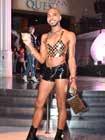
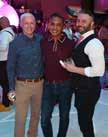
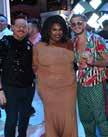
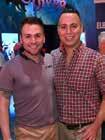
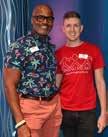

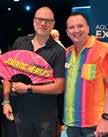
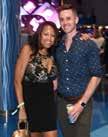
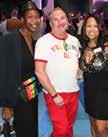
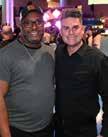
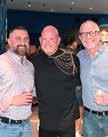
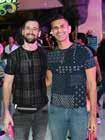
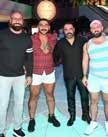
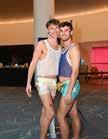
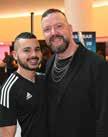
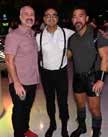
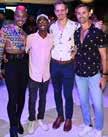
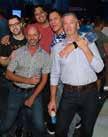
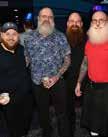
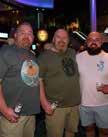
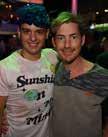


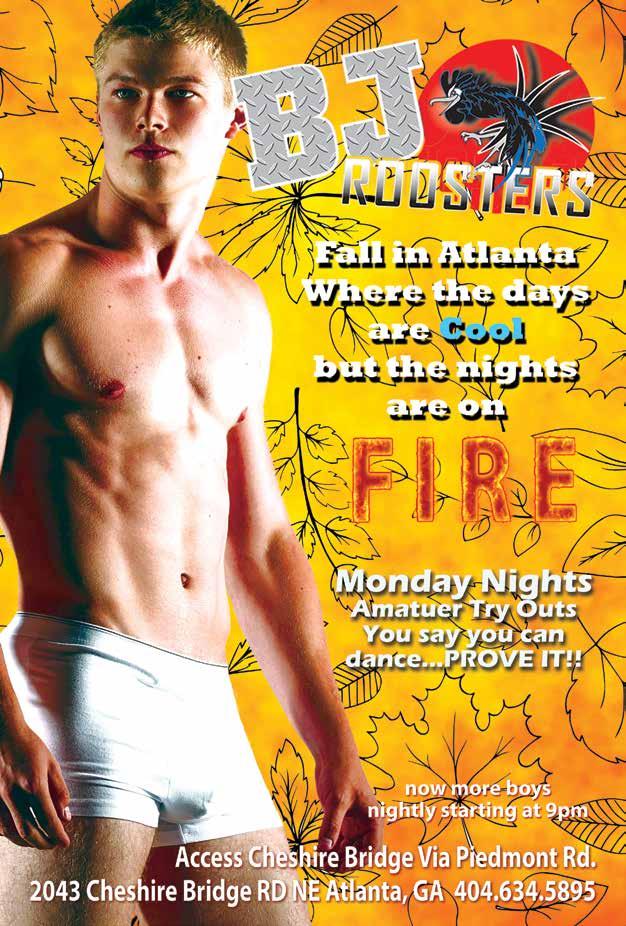
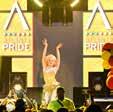

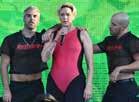
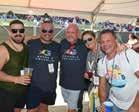

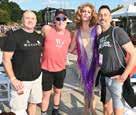
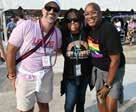

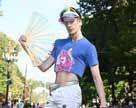
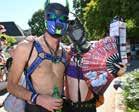
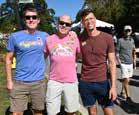
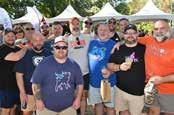
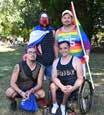
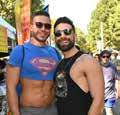

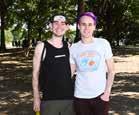


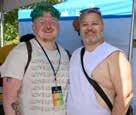
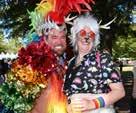
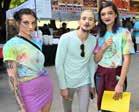
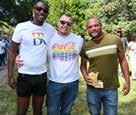















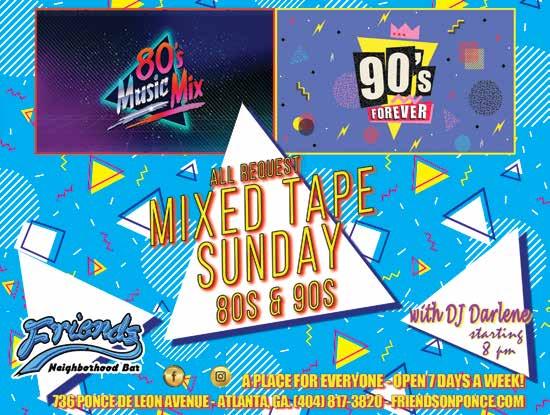


Tuc Watkins hasn’t just seen how gay relationships have evolved on television — he’s been a part of that evolution. On “Desperate Housewives,” Watkins portrayed one half of gay couple Bob and Lee, who became residents of Wisteria Lane in 2007.

But the 55-year-old actor has actually been playing gay characters since the 1990s, when he portrayed the boyfriend to Alexis Arquette’s character in the 1997 indie rom-com “I Think I Do.” In 1999, he took on the satirical Showtime comedy-drama “Beggars and Choosers,” which ran for 42 episodes. In the show, Watkin’s character, Malcolm Laffley, came out of the closet after being accused of sexual harassment by a woman.
Now, as Colin, he returns to a different kind of queer culture in the Netflix series “Uncoupled,” where PrEP and sending butthole pics on Grindr are the norm and, most importantly, LGBTQ+ characters aren’t just mere accessories but fullon leads. In other words, as Colin breaks it off with Michael (Neil Patrick Harris), they don’t get to just watch the drama unfold — they are the drama.
Watkins, of course, is no stranger to the kind of heightened emotional spectacle that lives most commonly within the TV world. Beginning in 1994, the Kansas City native spent nearly 20 years on “One Live to Life.” More recently, he played Hank in the 2018 Broadway revival of “The Boys in the Band” and the 2020 Netflix film, which featured the same Broadway cast,
including Watkins’ partner Andrew Rannells.
Recently, Watkins reflected on his firsthand experiences of playing gay roles, how it took 30 years for him to star in a Darren Star (“Sex and the City,” “90210”) project, and the crazy thing he learned that Neil Patrick Harris can do with his tears.
A gay man being in a bubble after being in a relationship for so long, which is the concept for “Uncoupled” — has that ever been you, where you get back out into the gay world and you’re like, “Wow, gay people have changed”?
Unfortunately, I have experience in this arena. I’ve had four significant, intimate relationships in my life, and I’ve been dumped in 50% of those relationships. The reason I think that those two guys dumped me is because they are morons. I am kind and fun and a 100% all-around, wonderful guy. I got back together with those two guys to prove that to them and then we broke up again. Yes. I’ve experienced singledom in midlife and it stinks. Of course, it stinks. You think it might be fun. “Oh, I get to go on the apps, so I get to date around. I get to try all these things that my friends have been trying.” Most of that stuff is more fun in theory.
You’re right because there’s a big learning curve here, as Michael realizes in “Uncoupled.” I imagine straight people also have to deal with some kind of cultural curve after their breakups.
Breakups don’t choose a sexuality to be more horrible to. They’re bad to everybody. I think
what is unique about “Uncoupled,” is it wasn’t that long ago that we were celebrating gay marriage, but what comes with gay marriage? Gay divorce, and so there’s two sides to that coin. To reflect what it’s like to be single and gay in midlife in an urban environment is not something that we’ve explored a lot. In the hands of [creators] Jeff Richmond and Darren Star, breaking up stinks when it happens to you. But when it happens to someone else, it’s funny.
Speaking of gay men in relationships on TV, I was thinking about Bob and Lee in “Desperate Housewives” and reflecting on whether a shift has happened in how gay or queer men in relationships are portrayed. Have you seen a shift between being an actor on that show and, years later, on “Uncoupled”?
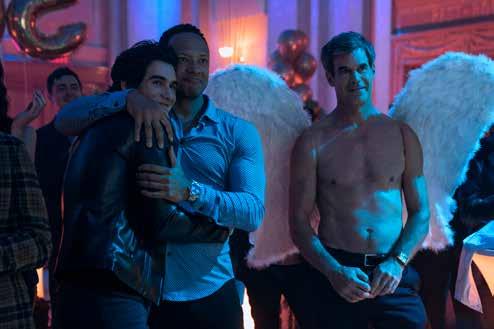
Well, I think that’s a really good observation because there has been a shift. When Kevin Rahm and I played the gay couple on “Desperate Housewives,” it was about the same time that Jesse Tyler and Eric [Stonestreet] were playing the gay couple over on “Modern Family.” But what was notable about those two things is that there was a gay couple on those shows. And what I think has happened since is, you’ve got a show like “Uncoupled,” where it’s full of characters from the LGBT community. It’s not just the gay couple who have to represent what a gay couple is. You’ve got different stripes from a very colorful tapestry. I don’t feel like we have to show up and feel like we’re representing what being a gay person means. Because as we all know, there’s a huge spectrum, and that spectrum is now starting to be reflected in the programming that we have.
I don’t remember in “Desperate Housewives” how many love scenes you had with Kevin. But I do know that “Modern Family ” got a lot of
flack for not allowing its gay couple to kiss. I think Kevin and I got married on that show. And if I remember correctly, there was a kiss in the script and it was cut, either by the time we shot it or the time that we aired it. Now to their credit, later, we had a very passionate kiss in another episode, but the fact that it was an issue… It probably went through several committees at the network: “Should they or should they not?” And if you watch “Uncoupled,” there’s a lot more than kissing. I’m no prude, but it gets pretty… in there.
The show opens up with you two in bed.
It does. In fact, in the script, it was more graphic. What made it into the episode was a little bit tamer, but we are pushing that envelope in scripts and what we shoot. And maybe it doesn’t always make it to screen, but we are headed in that direction. I think that’s a great thing. It’s just more representative of who we are as a community.
What was the conversation around the scene that was cut and the one that inevitably made it on screen?
I was not part of that conversation. I was in the scene, and Neil and I did the scene together. That scene in bed initially was a scene [that] was more graphic in a funny way, but in a very real way. I think they actually made a good choice in toning that down a little bit, because I think it may have set the series off on the wrong foot. The first 30 seconds are very indicative of the tone of a show. I think it would’ve been a good spice to the show, but maybe not in the first 30 seconds. [In a separate interview, Star said, “We wanted to emphasize the intimacy of their relationship and not the sexuality of their relationship. For the first 30 seconds of a show
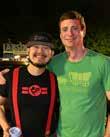
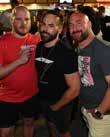
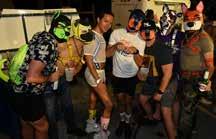
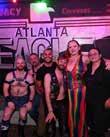
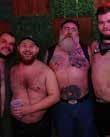
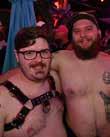

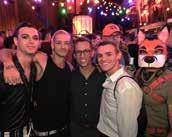

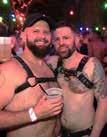

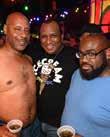
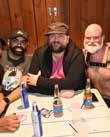
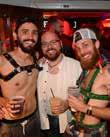
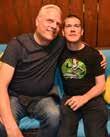
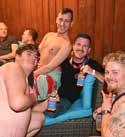

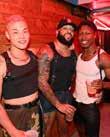
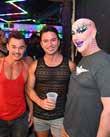
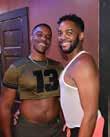
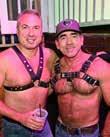
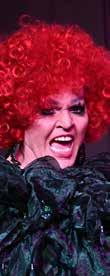
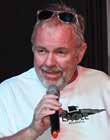


that nobody knows what it’s about, it felt like it was kind of creating almost a false impression of the story we wanted to tell about who these two people were.]
Well, I’ve been trying to work with Darren Star ever since he did not cast me in the pilot of “Melrose Place.” I reminded him of that when we started working together. I schemed and plotted and made very fast work of forcing him to cast me almost a half century later.
What happened with “Melrose Place”?
Well, I auditioned for the gay guy, and he hired that knucklehead, Doug Savant, instead of me. Doug and I later became friends on “Desperate Housewives.” He’s one of the nicest guys in the world, which made it even worse that Doug got the job because a nice guy succeeded. There’s nothing worse than a nice guy succeeding. You stick around long enough, everything comes around. So it took a while, but I got to work with Darren after all.
So what was it like to be a part of the Darrenverse?
What I like about Darren shows is they’re aspirational. By way of example, I was in a relationship with a guy, and I had the opportunity to move to New York a number of years ago, and he didn’t want to move to New York. I made him watch “Sex and the City” because who doesn’t want to live in Darren Star’s New York City? I made him watch that and sure enough, it worked, and he moved to New York with me. I think [Darren] creates a world that we want to live in. “Desperate Housewives” was also a world like, “Who doesn’t want to live on that street? It looks so inviting.” In fact, I tried to mail a letter in the mailbox one day and the prop guy said, “What are you doing? That’s a prop.” You forget that you’re on a set.
For “Uncoupled,” what was it like building an onscreen romantic relationship with Neil, and how much did you know each other before you started shooting? Neil and I had never met. I quickly learned that Neil is like a surgeon when it comes to his acting style. He knows what needs to be done and he executes it. He knows where the joke is, he doesn’t do too much. He doesn’t do too little. And, well, he’s a magician, isn’t he? In real life, he’s a magician. He’s got a tattoo of a magic trick on his shoulder. One of the magic tricks that I saw him perform was, he has to do some pretty emotional, heavy lifting in some scenes that he and I do. When he was shot in profile, he cried from the eye that was on camera. But he reserved the tears in the eye that the camera couldn’t see, in case there was coverage coming up that he might need to use that eye. Now, that is a real technical, magical actor at work.
I didn’t even know that was scientifically possible. Well, he’s got a real facility to his instrument, you could say.
You have appeared in some of my favorite shows throughout the years, including “Six Feet Under” and “The Other Two.” I was surprised to find out that you were in “Silk Stalkings,” the show I watched and shouldn’t have as a teenager.
I think Rick Springfield beat me up in “Silk Stalkings.” I was beat up by Rick Springfield. What does that do for your ego to be beat up by Rick Springfield?
If you’re going to be on “Silk Stalkings,” you might as well. Yeah. Might as well get beat up by Rick Springfield.
Growing up, what was the moment in your life where you knew you wanted to be an actor? I remember in high school, I went to see a production of “Cyrano de Bergerac” at the Guthrie Theater in Minneapolis. There was a moment where the stage went dark, and it came right back on and a huge tree branch had come out from under the proscenium. The actors took their cues off of individual leaves that fell off of that branch. I remember thinking, “That is so cool, I want to do cool stuff like that.” I think I was more interested in the magic and the tricks.
The first musical I ever saw was “The Music Man” with Tony Randall at Starlight Theater in Kansas City, and I was just a kid. I remember that at the end of one of his big musical numbers, Tony Randall climbs to the center of this red, Japanese bridge. One of those short but highly arched, red bridges. He throws out his arms and it’s a big musical number that ends. My takeaway was: “That’s not a real bridge. That’s a bridge on a stage, and that’s cool. I want to do that.” My entrance to being an actor was for all the tricks and the fun stuff.
Now that you’ve been doing this for quite some time, have you pulled off the kind of magic you dreamed about as a kid?
Well, I used to think as an actor, I wanted to ride a horse, shoot a gun and get killed. I got to do all three of those things in “The Mummy,” 20 years ago. So maybe I should have just retired at that point. It’s all downhill after you get to ride a horse, shoot a gun and get killed.
And of course, Rick Springfield. Yes. Well, that was a departure.
Chris Azzopardi is the Editorial Director of Pride Source Media Group and Q Syndicate, the national LGBTQ+ wire service. He has interviewed a multitude of superstars, including Cher, Meryl Streep, Mariah Carey and Beyoncé. His work has also appeared in The New York Times, Vanity Fair, GQ and Billboard. Reach him via Twitter @chrisazzopardi.
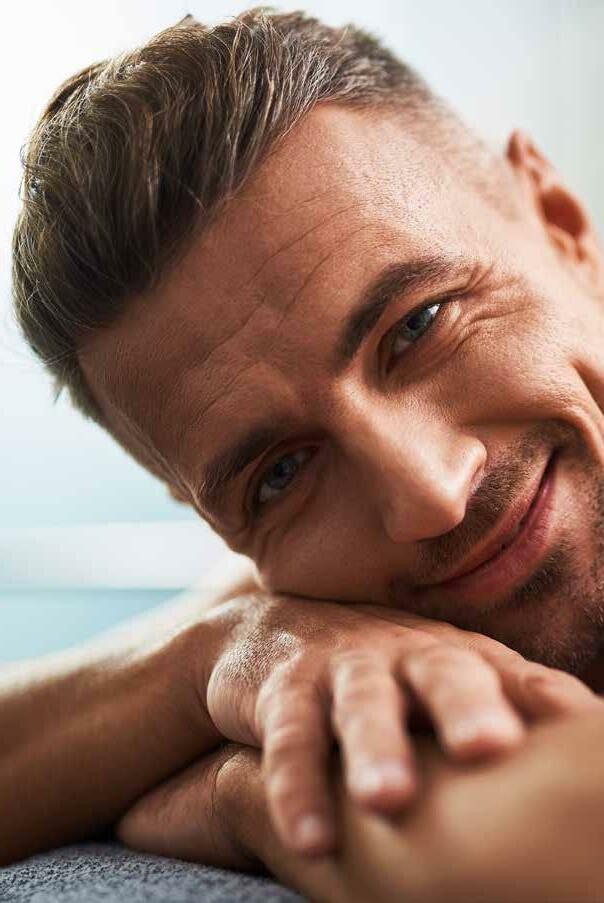 By Mikkel Hyldebrandt
By Mikkel Hyldebrandt
Pride is over, but you might still feel the aftereffects of a long party weekend of parties, after-hours, and many other things that will keep you partying on and on! Like most people, you need to do a pretty quick turnaround and get back to your daily responsibilities without having the post-Pride exhaustion looming over you – here are some tips for a speedy recovery.
It goes without saying, but you need to catch up on sleep. But although napping on the couch may seem like the way to go, the better strategy is to go to bed early, so you don’t mess up your sleep pattern further throughout the week.
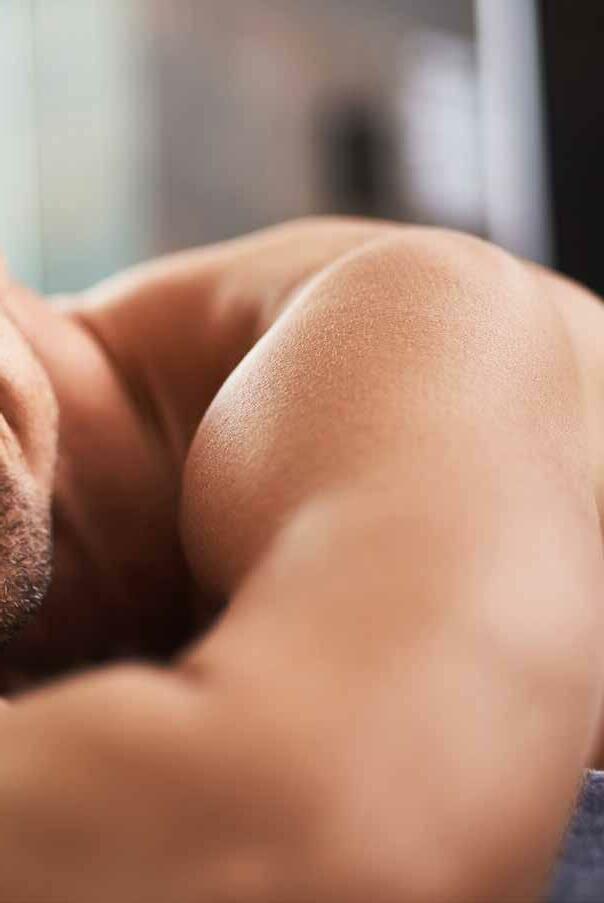
You probably feel like you just did a marathon after your weekend of partying, and exercise may be the last thing on your mind. However, some light activities like a walk or simply getting outside in the fresh air and sun are welcome changes to the club’s darkness.
Water is the most effective way to cleanse your system, so drink plenty of water. Water with electrolytes is best, so get the best hydration.
Although you may be craving an extra serving of fries with those burgers and extra-large pizza, there is really good reason to try and eat sensibly. Perhaps you haven’t been observing mealtimes properly or maybe not eaten at all, so your body is craving nutrients and vitamins! You should deny yourself that recovery meal, but maybe get a side salad to go with those fries.
Although we in no way condone the use of drugs, it would be ignorant to
deny that drug use has taken place during the celebration of Pride. Taking 5HTP or 5-Hydroxytryptophan, which can be purchased at any pharmacy or health store, can help to replenish your serotonin levels after ingesting recreational drugs. It works as a neurotransmitter that helps moderate the transmission of signals between nerve cells.
After a weekend of thousands of impressions, it’s time to create some balance. Indulge in your favorite wellness rituals, do some restorative yoga, or book a well-deserved massage or facial for a moment of deep relaxation.
You may be a little down after a weekend where you feel you may have overindulged in all of it. Instead of feeling bad about what you may have done or focusing on how lousy you feel after the party weekend, remember how fabulous the weekend was. Look at photos from the events you attended and try to change your perspective.
Feeling tired and a little down after an epic party weekend is to be expected but is an expected and natural part of your partying experience. Luckily, you can play an active role in aiding your body and mental state to recover – and just remember that it is a marathon, not a sprint!
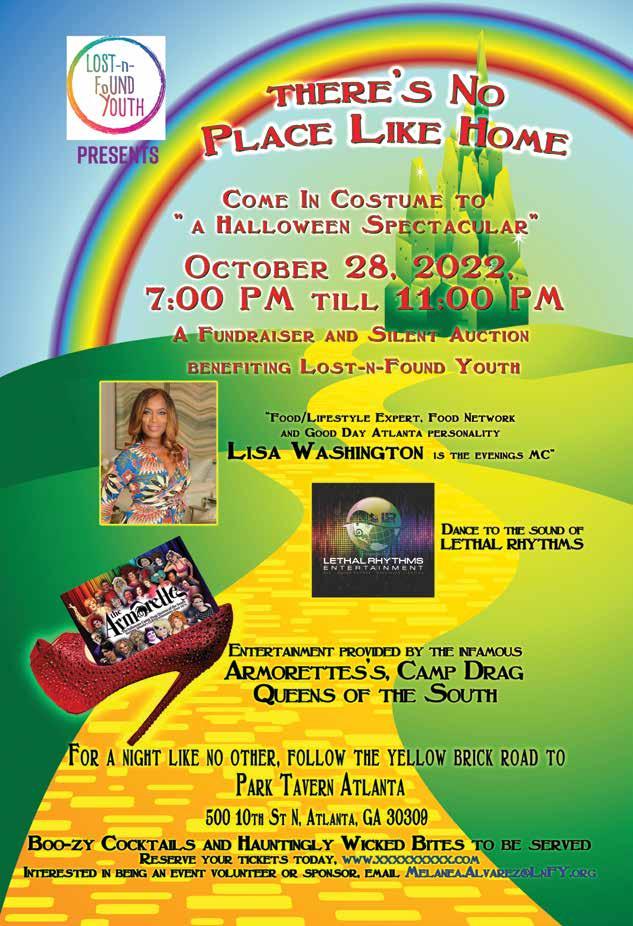

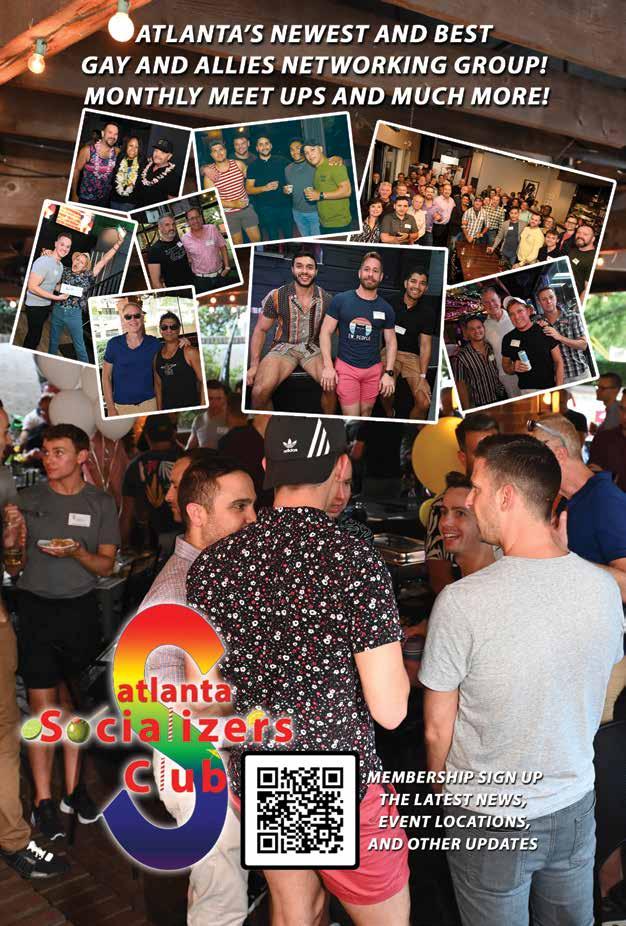
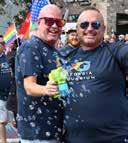

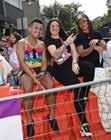
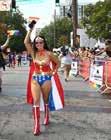
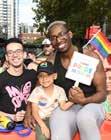
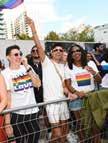
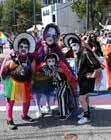
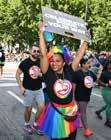


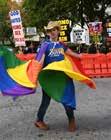
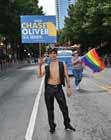
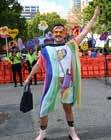
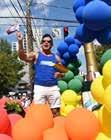

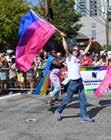
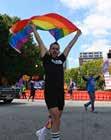
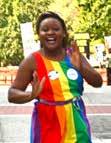




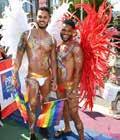
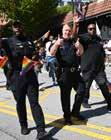
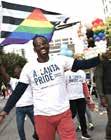








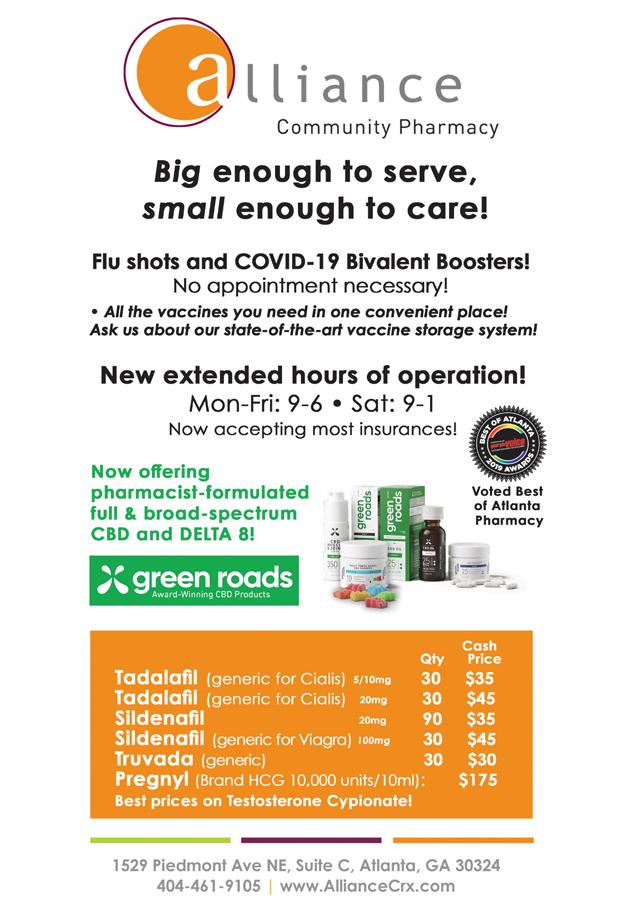
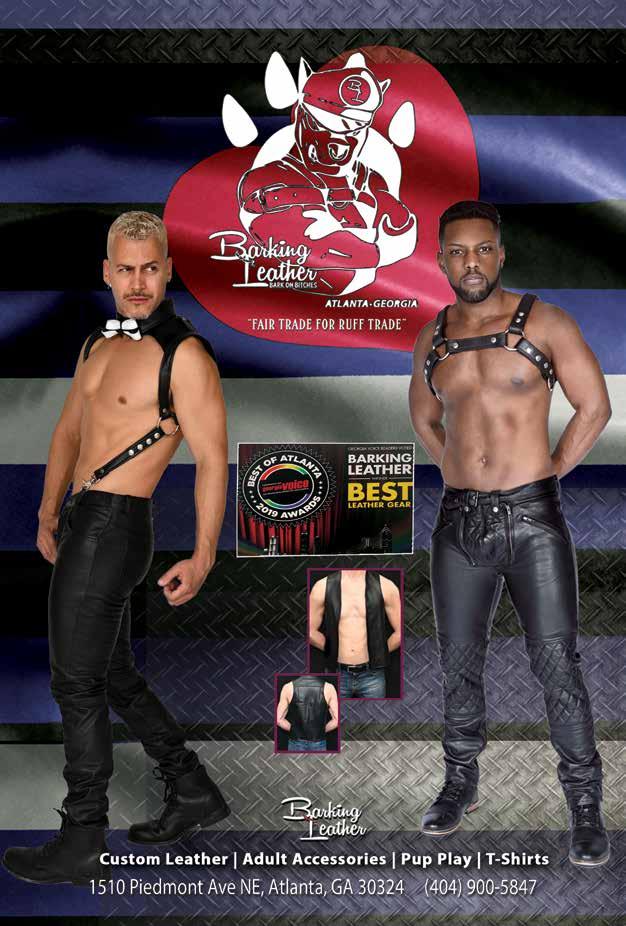
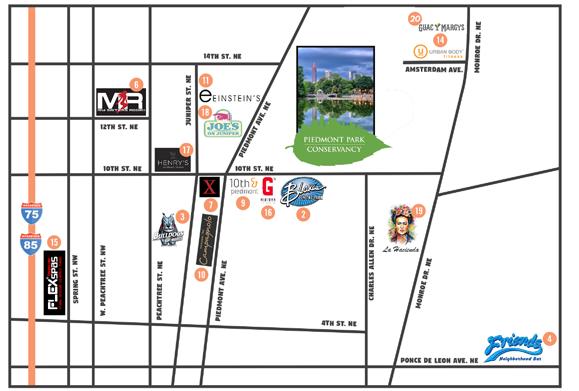




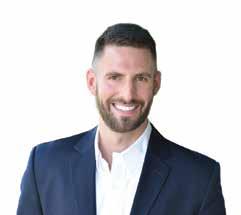
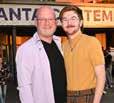


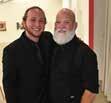
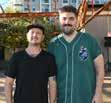


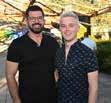

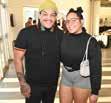
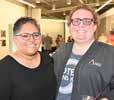
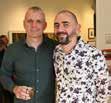
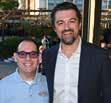

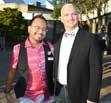
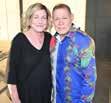

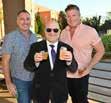
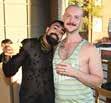

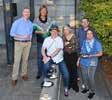

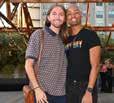



SISTER’S
PARK
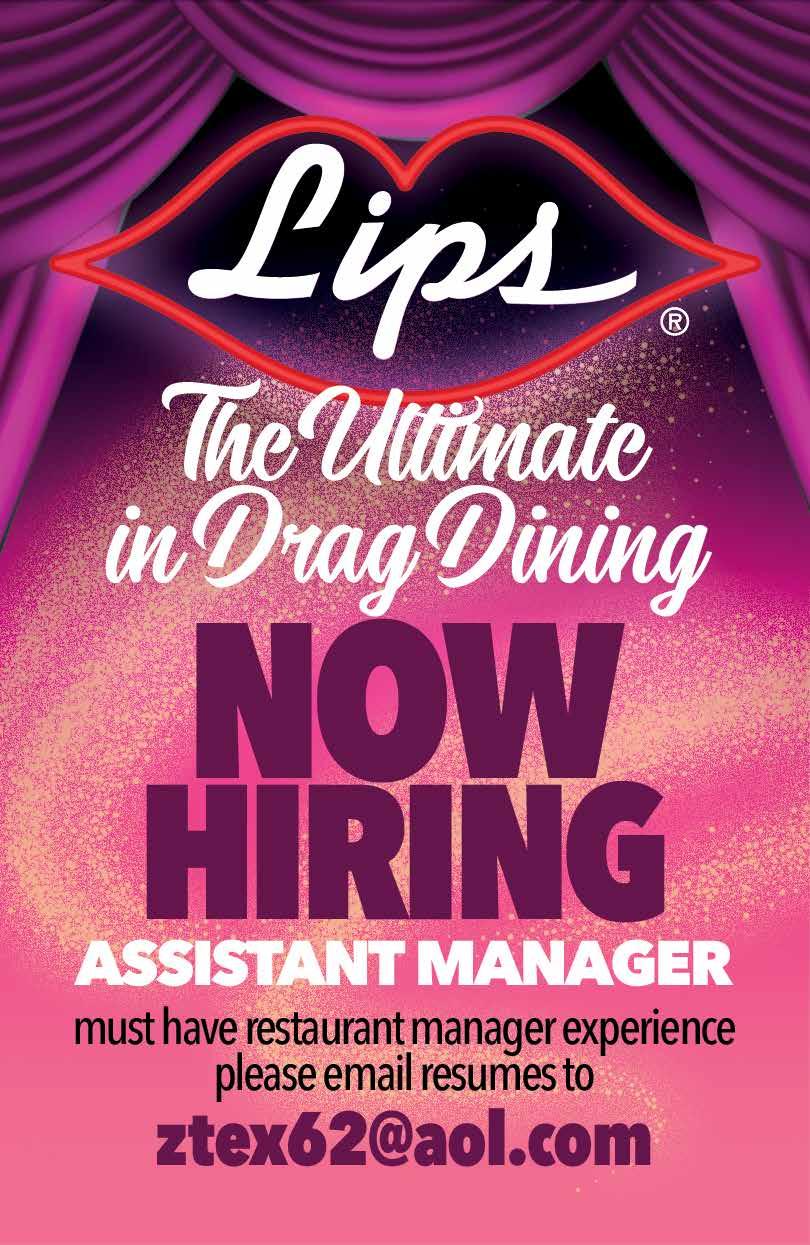
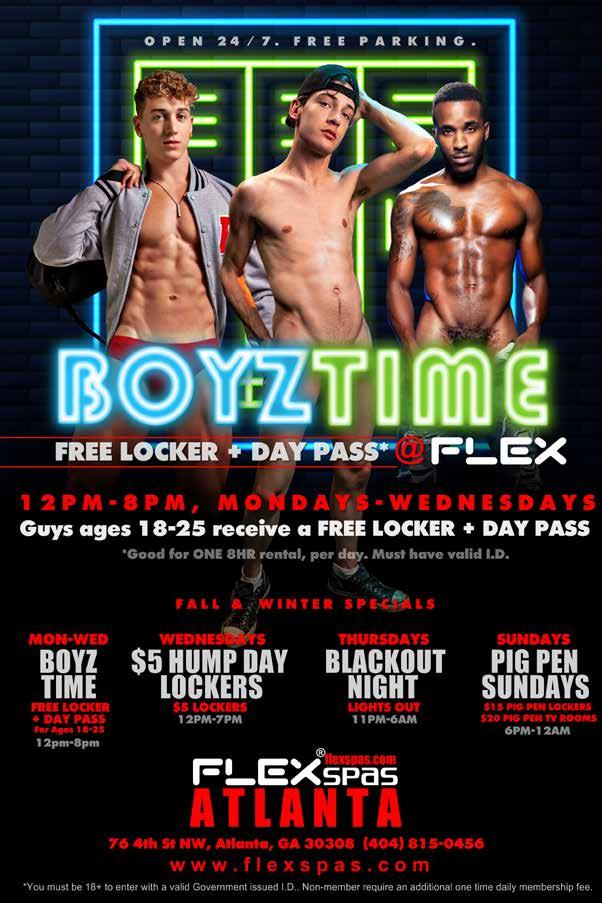
Heretic Harness Party: Heroes & Villains edition @ Heretic | October 14, 10 pm – 3 am
Come dressed up as your favorite Superhero for the Heretic Harness Party: Heroes & Villains edition
“@QᴜᴇᴇʀZ” presented by the Atlanta Gay Men’s Chorus @ Ferst Center for the Arts | October 15, 3 pm
The Atlanta Gay Men’s Chorus is proud to present the world premiere of Julian Hornik’s “@QᴜᴇᴇʀZ,” a new choral theatre work musing on the joys and challenges unique to Gen Z.
--
Neonblk @ Mary’s | October 13, 9 pm – 11 am

Come see this show created to make a space for black queer performers to shine. Hosted by Dotte Com and featuring Blackberri (Houston, TX), Taylor Alxndr, Pressure K, Cici Nicole, and Ella-Saurus Rex.
Scarlet and the Stars Drag Show @ Guac y Margs Midtown | October 15, 10 pm
Get ready for Scarlet Vixen’s debut drag show, Scarlet and the Stars.
@ Atlanta eagle | October 13, 7-10 pm


Karaoke is a team sport, too! Come out to support of Athlete Ally, an LGBTQIA+ nonprofit committed to advocating for equality in all athletic communities. ��️�� In partnership with Corona USA. RSVP at coronateamkaraoke.com.
--
Meat Up Sunday Night Hustle @ The Hideaway | October 16, 5 pm to midnight
This Sunday night hustle dedicated to closing out the weekend with Music by DJ Rob Reum.
--
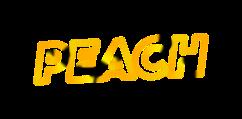
Halloweentown Market @ East Atlanta Village Farmers Market | October 15, 12-5 pm
A haunted pop-up of treats, tricks and more! Featuring 20+ local vendors with handmade goods, arts, crafts, candles, soaps, vintage and more.
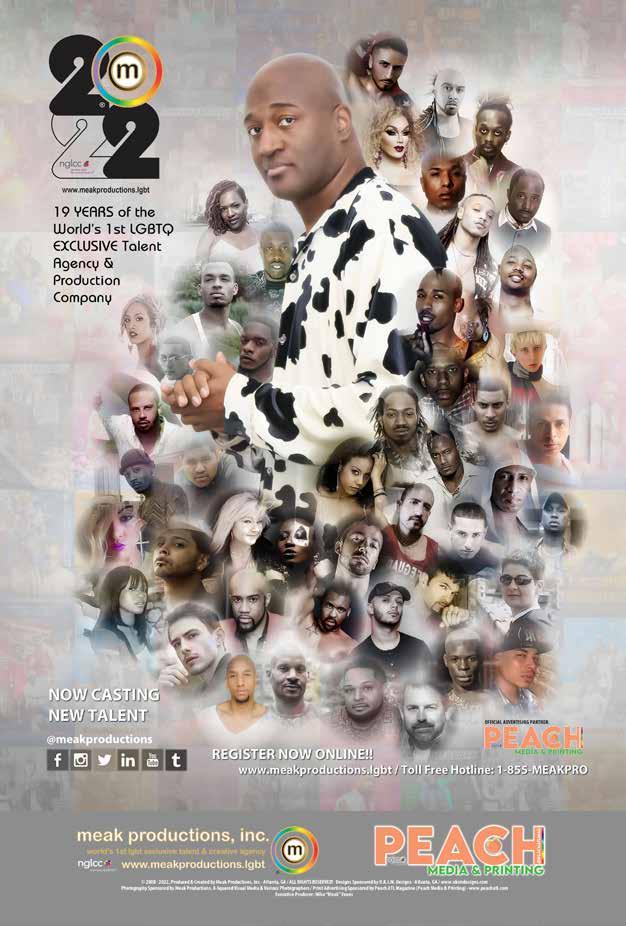
I just had an amazing Atlanta Pride weekend; I went to a bunch of parties, met a bunch of cute guys, made out with a lot of them, and had sex with a few of them. Best Pride ever, except I just got a text saying that one of the guys I made out with tested positive for monkeypox. What should I do now?
If you have last week’s Pride issue of Peach, there’s an interview with Dr. Demetre Daskalakis, the cur rent Director of the CDC Division of HIV Prevention, who was appointed National Monkeypox Response Depu ty Coordinator to the White House where you can get a lot of information on the MPX outbreak. The short version: seek care if you know you have been exposed to someone with monkeypox. If you haven’t been vac cinated, you may get the vaccine as post-exposure protection or prophylaxis (PEP). If you start to get symptoms (often flu-like in the beginning), get tested and isolate while you wait for your results. Assume that you have it until your results come back. I know it’s not the ideal post-Pride scenario but preventing and treating possible infection is key here.

